Chris Sayer of Petty Ranch is a fruit-loving foodie’s dream. He runs his family ranch in an artisanal fashion, growing limited amounts of specialty crops and waiting to harvest them at their peak. His tree-ripened, handpicked fruit yields concentrated flavors much more intense than regularly harvested commercial fruit.
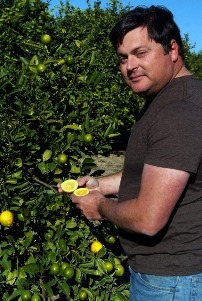
My taste buds first tripped upon Petty Ranch produce in a lemon crepe cake created by Kate Slaton Dunbar of Petite Reve Café. The cake consisted of 16-20 layers of perfectly speckled crepes and in-between them was the most divine, just-tart-enough, sunny-hued lemon curd. Dunbar confided the Meyer lemons she’d purchased from Petty Ranch were the secret behind her incredible curd.
Dunbar features as many Petty Ranch products on her menu as she can squeeze in. She uses their blood oranges, navel oranges and lemons for her syrups and citrus bars and their figs for tarts, cakes, whipped cream and pastry cream. Dunbar is part of the McGrath farming family and feels passionately about sourcing food locally and supporting smaller farms. Equally important to her is Sayer’s knowledge of what he grows. “The diversity of [Petty Ranch] citrus crops helps me keep their produce on my menu year-round and Chris’s understanding of the citrus they grow makes it effortless for me when ordering. I can tell him what flavor profiles I want and he can match it to their citrus.”
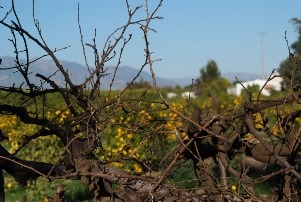
Ventura Limoncello Company buys Petty Ranch Eureka and Lisbon lemons for their handcrafted lemon liqueur and is in the process of developing Ventura OrangeCello Blood Orange Liqueur, using their blood oranges. “Chris personally picks the lemons to our specifications, ensuring we are getting the freshest “tree-ripened” fruit to produce our award-winning Limoncello,” explained James Carling, President of Ventura Limoncello Company.
So who is this farmer behind so many delicious dishes on Ventura menus? I recently had the opportunity to visit Petty Ranch and walk the rows of laden lemon trees with him.
Sayer has a quiet boyish charm that complements his creative smarts. He’s very humble and easy-going but doesn’t miss a thing.
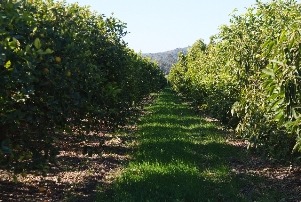

Like farmers over the years who religiously studied the almanac, Sayer looks to nature for solutions. For flooding and erosion – cover crops. But what about when the cover crops on his Santa Paula property proved impossible to mow due to rocky, hilly soil? After breaking weed-eaters on rocks and finally resorting to torching them with a flame, (“fun but ultimately not a good solution”), Sayer got goats. “They’re great entertainment and lawnmowers.”
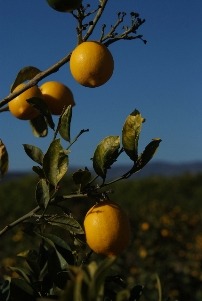
A hybrid between a lemon and mandarin orange originally from China, Meyer lemons are sweeter, more complex, more perfumed and less acidic. As Alice Waters, founder of Chez Panisse stated, “I don’t know many people who have tried [a Meyer lemon] without getting hooked.”
Sayer plucked a Meyer lemon from one tree and a Eureka from another, cut them open and we smelled them. They were distinctly different. The Meyer lemon was so much more pungent. They were also darker, thinner-skinned and juicier. Then Sayer showed me a half green Eureka on a tree and explained most lemons harvested for commercial industries are picked at this point. But most of his clientele prefer to wait for the fruit to fully mature. “For our chefs and artisan producers, a more complex and complete flavor is desirable. It allows the sugars and oils to develop further.” Indeed, sometimes Sayer’s fully ripened Meyer lemons have so much concentrated sugar in them their juice won’t fully freeze.
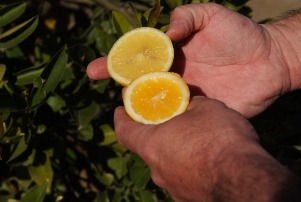


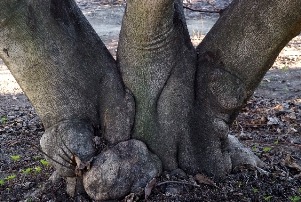
Taste Petty Ranch produce at The Sidecar Restaurant, The Local Café, Petite Reve Café and in limoncello by Ventura Limoncello Company. Don’t be afraid to ask the restaurants which items feature their fruit, that’s part of learning the local flavors of Ventura County.




